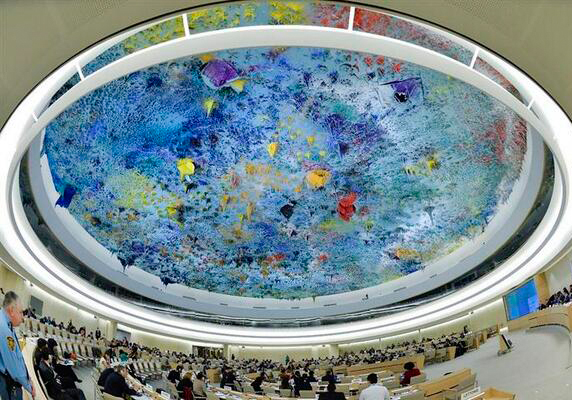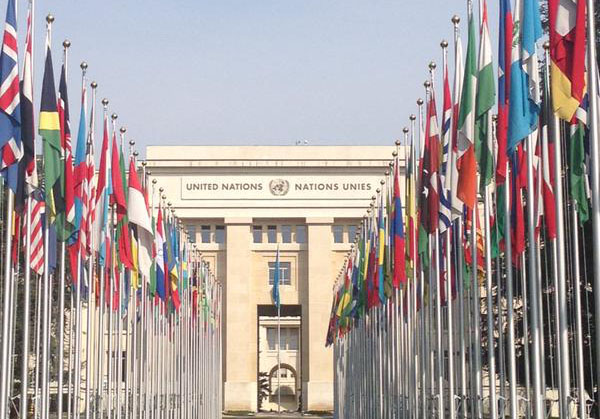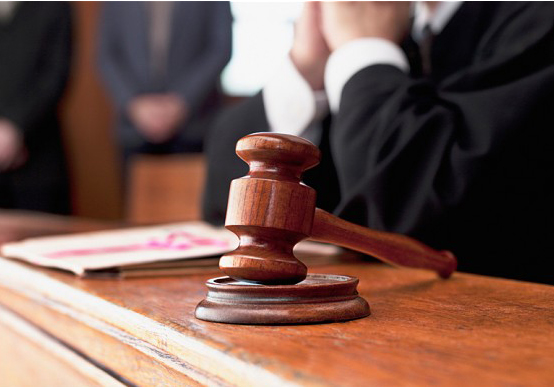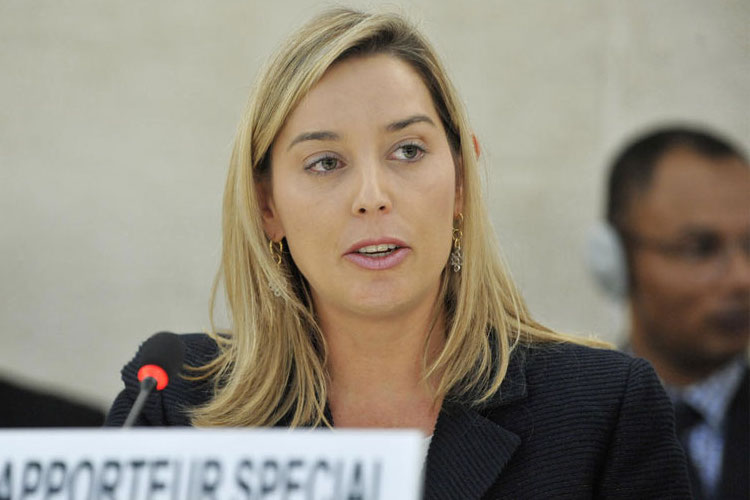
Sep 18, 2015 | Advocacy, Non-legal submissions
The ICJ today delivered an oral statement at the UN Human Rights Council in the General Debate on item 3, concerning judicial accountability, and on the link between ESC rights and enforced or involuntary disappearances.
In the statement, the ICJ welcomed the focus on judicial reform and accountability of judges in the report of the Special Rapporteur on the promotion of truth, justice, reparation and guarantees of non-recurrence.
The ICJ also welcomed the initiative of the Working Group on Enforced or Involuntary Disappearances to address more systematically and comprehensively the relationship between disappearances and the realization (or lack thereof) of economic, social and cultural rights.
The full statement may be downloaded in PDF format, here: UN-Advocacy-HRC30-OralStatement-GDItem3-2015-ENG

Sep 16, 2015 | Advocacy, Non-legal submissions
The ICJ today delivered an oral statement at the UN Human Rights Council, in the interactive dialogue with the Working Group on Mercenaries on its report on private military and security companies.
The full statement may be downloaded in PDF format here: UN-Advocacy-HRC30-OralStatement-WGMercenaries-2015

Sep 15, 2015 | Advocacy, Non-legal submissions
The ICJ today made an oral statement at the UN Human Rights Council, welcoming the presentation of UN Basic Principles and Guidelines on the right to challenge detention, and a report on forced labour and slavery in supply chains.
The statement was made during an Interactive Dialogue with the Working Group on Arbitrary Detention and the Special Rapporteur on contemporary forms of slavery.
The ICJ said that the implementation of the Basic Principles and Guidelines would help prevent governments from depriving people of liberty solely for exercising freedoms of opinion and expression; peaceful assembly and association; thought, conscience and religion; or on the basis of discrimination. Such violations are often achieved by circumventing or suspending essential legal procedural protections such as habeas corpus.
The ICJ noted that the right to challenge detention is also a key safeguard against incommunicado or secret detention, enforced disappearance, and torture and other cruel, inhuman or degrading treatment.
The ICJ welcomed the attention the Working Group has given to the challenging contexts of counter-terrorism and armed conflicts, where such concerns are particularly acute.
The ICJ also welcomed the report of the Special Rapporteur on contemporary forms of slavery, addressing the issue of modern slavery and forced labour in supply chains, and the Rapporteur’s emphasis on the right to an effective remedy. In addition to the international legal and policy frameworks and continuing efforts by States and businesses outlined in the report, the ICJ noted that UN treaty-bodies have produced useful guidance and recommendations, such as the General Comment adopted by the Committee on the Rights of the Child in 2013, on State obligations regarding the impact of the business sector on children’s rights.
The full statement may be downloaded in PDF format here: UN-Advocacy-Oral statementWGADandSRslavery-2015
Earlier in the week, the ICJ published a legal commentary on certain aspects of the Principles and Guidelines, related to situations of armed conflict. The commentary is available here.

Sep 14, 2015 | Events
Judges, lawyers, prosecutors and human rights: 30 years of UN action
Side event, Tuesday 15 September 2015, 1600 – 1800
Room XXII, Palais des Nations, Geneva
Followed by a drinks reception hosted by the IBA’s Human Rights Institute
in Bar Serpent, Palais des Nations
The International Bar Association’s Human Rights Institute (IBAHRI) and the International Commission of Jurists (ICJ) are organising a side event at the Palais des Nations to mark the 30th Anniversary of the Basic Principles on the Independence of the Judiciary and the 25th Anniversary of the Basic Principles on the Role of Lawyers and Guidelines on the Role of Prosecutors. This side-event, taking place during the 30th session of the Human Rights Council, will look back on the progress that has been made in the protection of judges, lawyers and prosecutors over the past 30 years and the continuing challenges for implementation of the UN standards.
Side Event, 1600-1800
Opening remarks:
- Her Excellency Zsuzsanna Horváth Ambassador of Hungary
Speakers:
- Monica Pinto Special Rapporteur on the independence of judges and lawyers
- Anne Ramberg Secretary General, Swedish Bar Association
- Irene Petras Executive Director, Zimbabwe Lawyers for Human Rights
- Nazir Afzal Former Chief Crown Prosecutor, North West England
Drinks Reception, 1800
The IBA’s Human Rights Institute will host a drinks reception in Bar Serpent, Palais des Nations, with a number of high-level speakers to follow the side event to the 30th session of the Human Rights Council.
Speakers:
- Her Excellency Patricia O’Brien Ambassador of Ireland
- His Excellency Mothusi Bruce Rabasha Palai Ambassador of Botswana
- Monica Pinto Special Rapporteur on the independence of judges and lawyers
Side event co-sponsors include, in addition to the IBAHRI and ICJ:
Australian Permanent Mission to the UN, Permanent Mission of Hungary to the UN, Permanent Mission of Ireland to the UN, Permanent Mission of Mexico to the UN, Permanent Mission of Thailand to the UN, Permanent Mission of the Republic of Botswana to the UN, Council of Europe
Association pour la Prévention de la Torture, Avocats Sans Frontières, Colombian Commission of Jurists, Commonwealth Lawyers’ Association, Commonwealth Magistrates’ and Judges’ Association, International Legal Assistance Consortium, Judges for Judges, Lawyers for Lawyers
Attendance at this side event is open to individuals who have access to the UN grounds at Palais des Nations in Geneva.

Jun 18, 2015 | News
Mrs Gabriela Knaul (Brazil) today participated in an Interactive Dialogue with the Human Rights Council. Topics included children in the justice system, her visits to Qatar, United Arab Emirates, Tunisia and Portugal, and the need more generally for better implementation of relevant UN standards.
Mrs Knaul’s appearance before the Human Rights Council will be her last before her term in the mandate comes to an end in the coming months.
Her successor as UN Special Rapporteur on the independence of judges & lawyers is to be appointed at the end of the Council session, on 3 July 2015.
Following an initial presentation by the Special Rapporteur, the concerned countries responded, followed by discussion by other states, and civil society.









